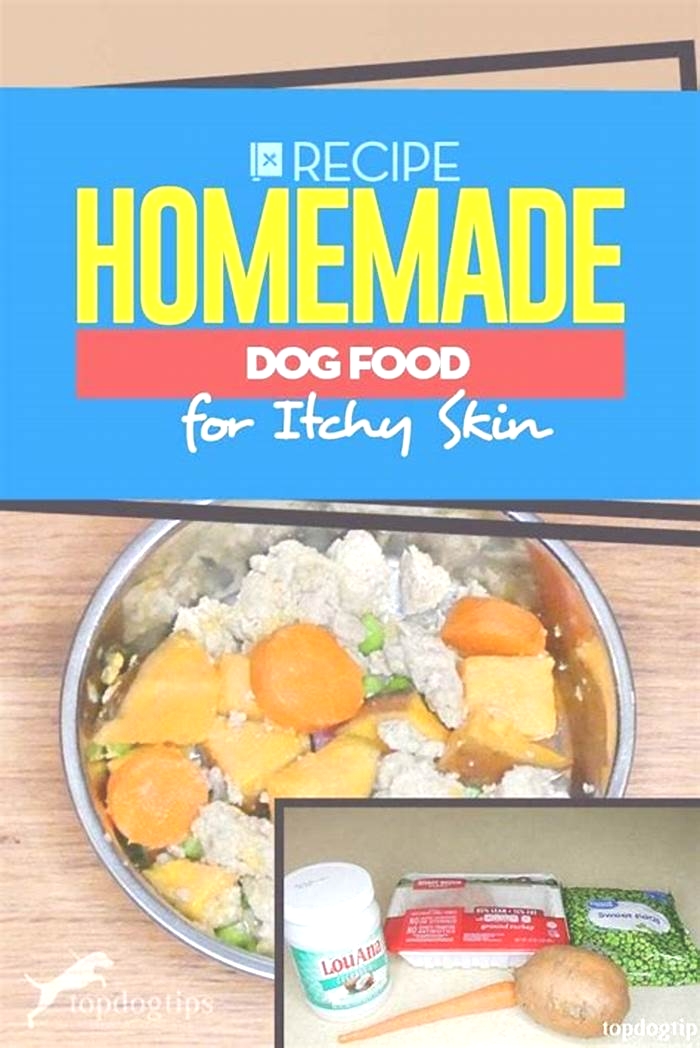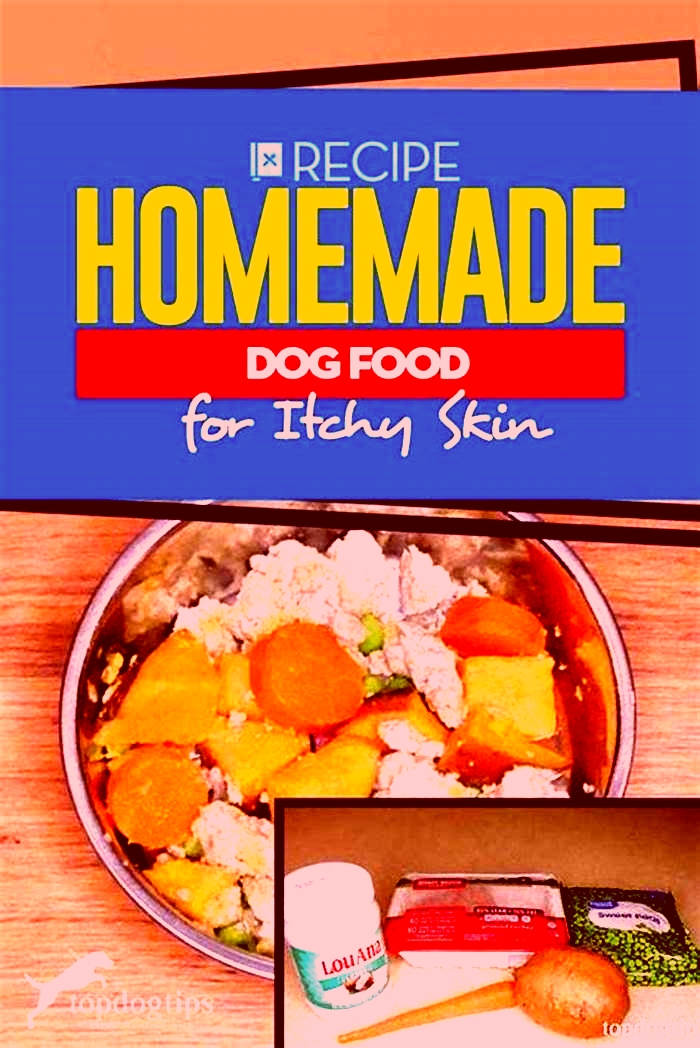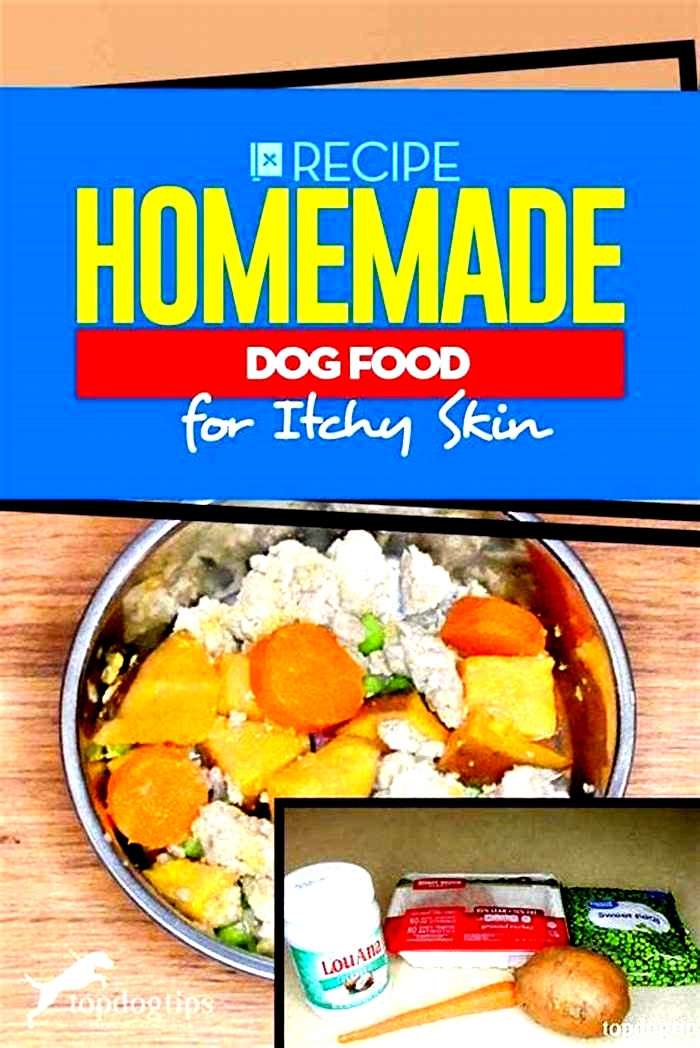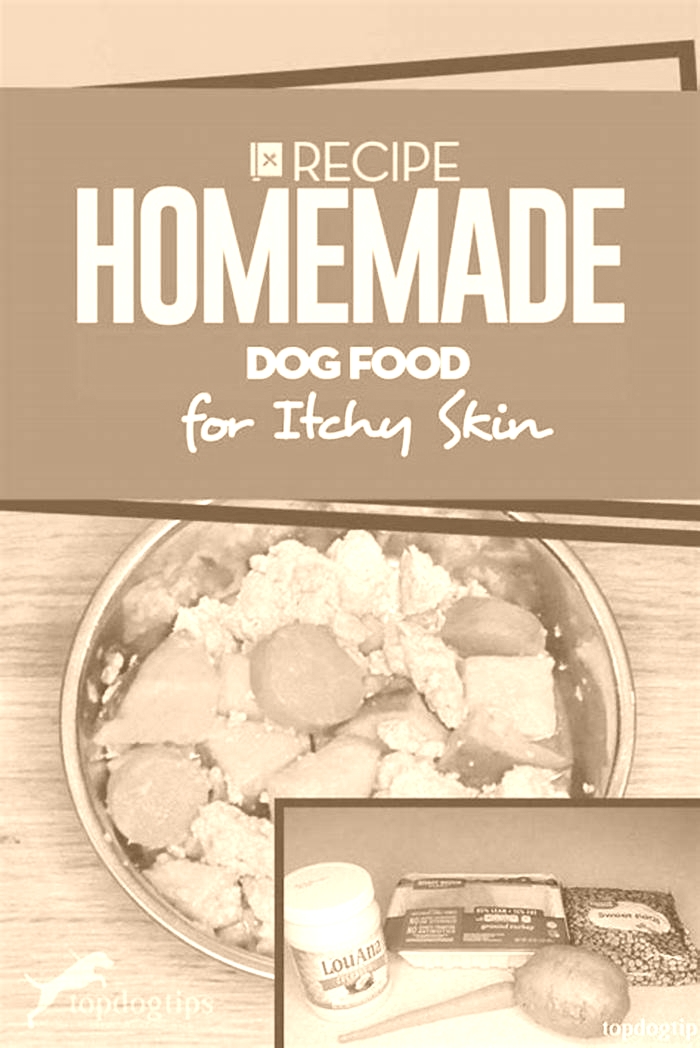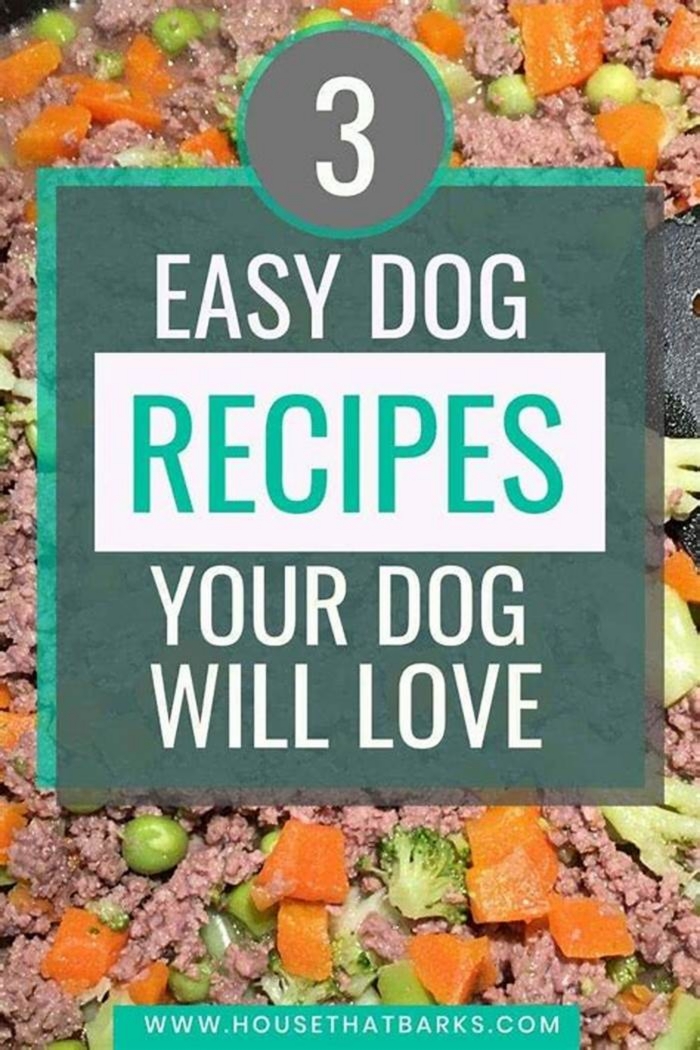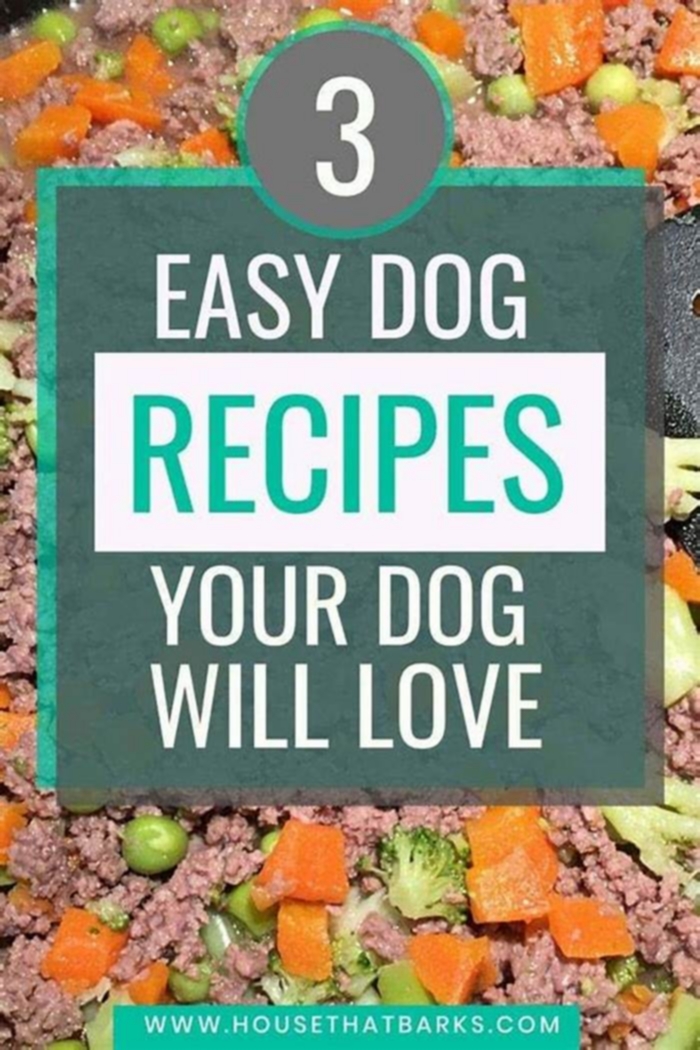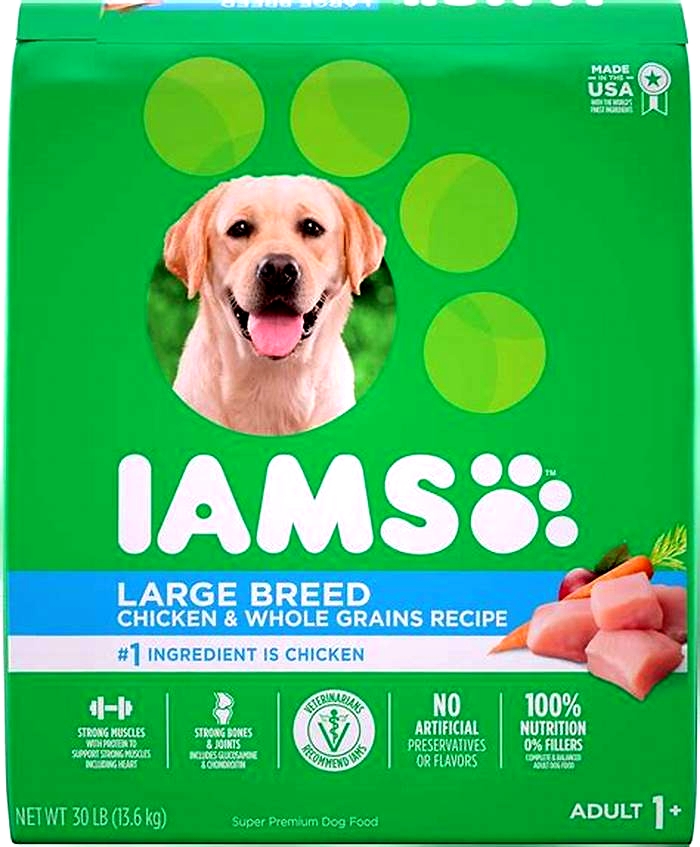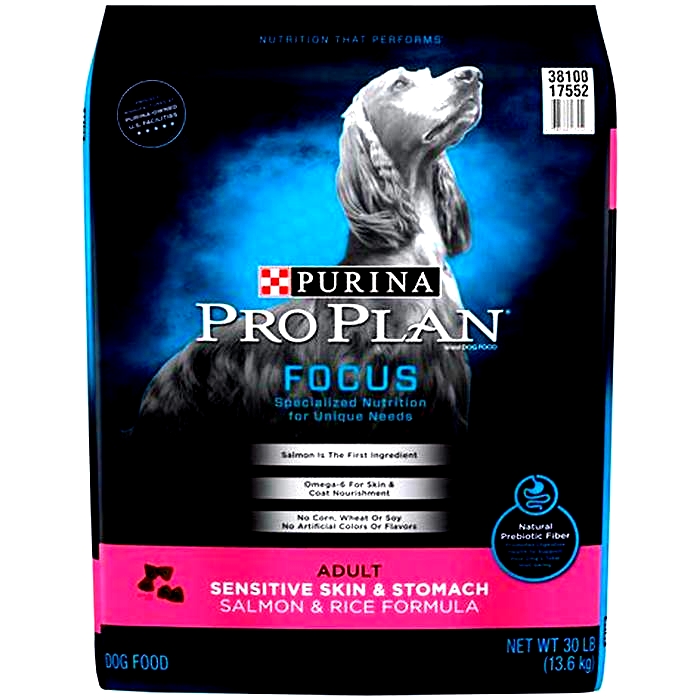homemade dog food recipes for itchy skin
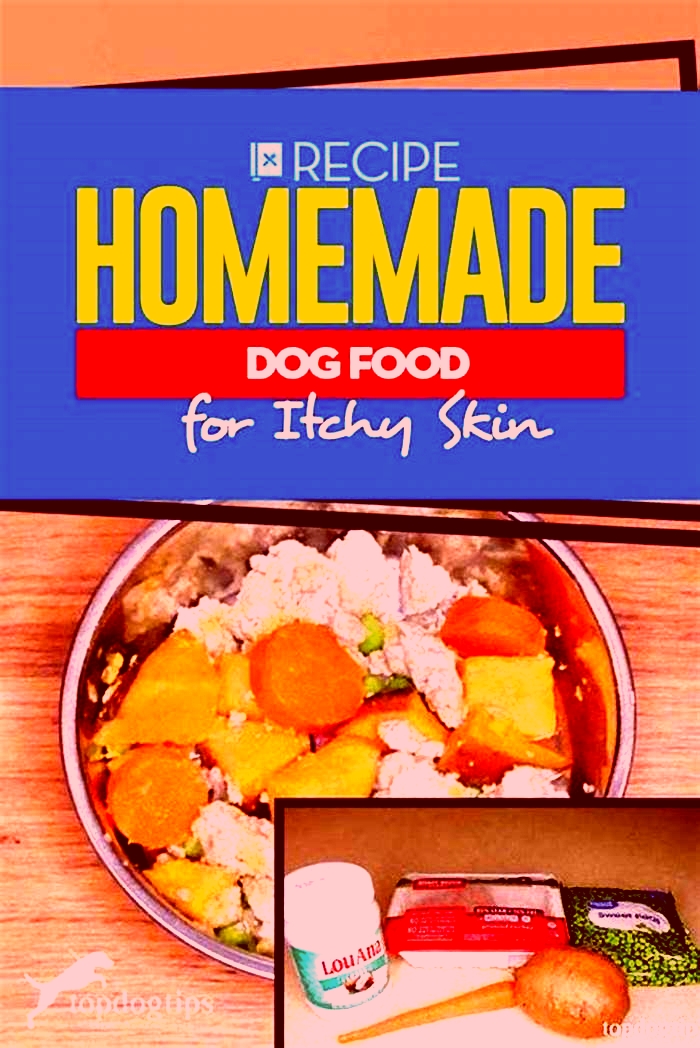
8 Homemade Dog Food Recipes for Skin Allergies (Vet-Approved)

The information is current and up-to-date in accordance with the latest veterinarian research.
Learn moreDoes your dog have skin allergies? You may be interested in making homemade dog food so that you can control the ingredients. If your dog is allergic to chicken, eggs, or wheat, you can easily avoid those ingredients by choosing the right recipe.
But how do you find the right recipe? Thats where we come in! Weve put together this list of eight healthy homemade dog food recipes for skin allergies. No matter what your dog is allergic to, you should be able to find the perfect recipe on this list.
What Causes Skin Allergies in Dogs?
If your dog has skin allergies, the first thing youll want to do is figure out what theyre allergic to. Dog skin allergies can be reactions to flea bites, certain foods, or environmental issues like dust and mold. Talk to your veterinarian if youre not sure what might be causing your pups itchy skin!
Dogs that are allergic to food can be diagnosed by placing them on a limited-ingredient and novel protein diet. Your vet will be able to help you pinpoint the exact triggering ingredient. The most common dog food allergies are chicken, pork, beef, dairy, eggs, and wheat gluten. Once you figure out which ingredients your dog is allergic to, you can choose the best recipe to provide them with some safe variability.
The Top 8 Homemade Dog Food Recipes for Skin Allergies:
These recipes have been approved by a veterinarian because they include only dog-friendly ingredients; however, some of these recipes are not complete and balanced diets to feed your pup on a daily basis. You need to know exactly what ingredients your dog is allergic to to consider what is safe for them. Once you know what your dog can eat, then these recipes can be a great add-on to provide some variability to your dogs diet. However, keep in mind that they are only meant to be fed on occasion and not as a regular staple diet. Please consult your veterinarian to help you decide what the best diet is for your dog.
1. Chicken-Free Homemade Dog Food Recipe
If your dog is allergic to chicken, heres a great dog food recipe youll want to try. It uses ground beef, along with vegetables and rice, to make a simple, tasty, and allergy-free dog food.
2. Turkey Rosemary Dog Food
Brown rice, turkey, and dried rosemary come together in this easy recipe to make a very simple homemade dog food. Your dog will enjoy the limited ingredients!
3. Wheat-Free Healthy Dog Food Recipe
If your dog is allergic to wheat, you may be interested in this easy recipe, which combines proteins like beef, turkey, and tuna with plain brown rice and vegetables.
4. Simple Crock-Pot Dog Food
This homemade dog food recipe for allergies is incredibly easy to throw together, as long as you have a Crock-Pot. Substitute the ground chicken with any other protein if your dog is allergic! Plus, its wheat-free.
5. Grain-Free Turkey Dog Food
Are you looking to avoid grains entirely? This homemade dog food recipe contains ground turkey, turkey liver, and vegetables like zucchini and broccoli. Simple and tasty!
6. Yogurt & Pumpkin Bowl for Dogs
Looking for something really simple that your dog will love? This yogurt and pumpkin bowl, which includes a few healthy herbs and vitamins, comes together quickly and doesnt use any common dog food allergy ingredients.
7. Veterinary Secrets Dog Food Recipe for Allergies
If your pouch is allergic to beef, then you might want to give this recipe a try. It has turkey, egg, fish oil, carrots, and brown rice as the main ingredients, plus some supplements. This homemade recipe can be a great option for your dog
8. Turkey Vegetable Dog Food
This homemade dog food recipe uses very few ingredients, making it safer for allergic dogs and easy on your wallet. Just combine turkey with peas, carrots, and sweet potatoes and youve got dog food!
Conclusion: Homemade Dog Food for Allergies
There you have it: 8 easy and healthy homemade dog food recipes for skin allergies. Whether your dog is allergic to beef, chicken, or grains, youll be able to cook a great meal using one of these recipes. We hope you can banish your furry friends allergies by learning to make dog food for dogs with allergies and give him a tasty meal!
Looking for more dog food recipes?
Featured Image Credit: Ezzolo, Shutterstock
10 Homemade Dog Food for Itchy Skin
Hello, fellow dog lovers! If youre reading this, chances are your furry friend is dealing with itchy skin. Youre not alone! Many dogs experience skin irritations, and it can be heartbreaking to watch them scratch. But fear not! Weve got a treat for you a list of 10 homemade dog food recipes specifically designed to soothe itchy skin. These recipes are not only delicious but also packed with nutrients that can help alleviate your dogs discomfort.
Why Homemade? The Power of Personalized Nutrition
Before we dive into the recipes, lets bark about why homemade dog food can be a game-changer for itchy skin. Commercial dog foods often contain additives or ingredients that can trigger allergies or skin reactions in sensitive pups. By preparing your dogs meals at home, you have complete control over what goes into their bowl, ensuring they get only whats best for their skin and overall health.
The Top 10 Homemade Dog Food Recipes for Itchy Skin
1. Salmon Sensation
Ingredients: Salmon, sweet potatoes, spinach, olive oil
Benefits: Rich in omega-3 fatty acids for healthy skin and coat
Key Takeaway: Salmon is a superfood for skin health!
2. Turkey and Rice Relief
Ingredients: Ground turkey, brown rice, broccoli, coconut oil
Benefits: Lean protein and hypoallergenic grains
Key Takeaway: Ideal for dogs with sensitive stomachs and skin allergies.
3. Soothing Chicken Stew
Ingredients: Skinless chicken, quinoa, carrots, peas
Benefits: Easy-to-digest protein, rich in antioxidants
Key Takeaway: A comforting meal thats gentle on the skin.
4. Beef and Veggie Broth
Ingredients: Lean beef, pumpkin, zucchini, bone broth
Benefits: High in protein and fiber, soothing for the gut
Key Takeaway: Beef is a great alternative protein for dogs with chicken allergies.
5. Omega Boost Fish Mix
Ingredients: Mackerel, brown rice, kale, flaxseed oil
Benefits: Loaded with omega-3 and omega-6 fatty acids
Key Takeaway: Excellent for improving skin and coat health.
6. Lamb and Lentil Delight
Ingredients: Ground lamb, lentils, apples, parsley
Benefits: Rich in iron and protein, great for sensitive skin
Key Takeaway: Lamb is a novel protein, often suitable for allergy-prone dogs.
7. Duck and Potato Pt
Ingredients: Duck meat, sweet potatoes, green beans, olive oil
Benefits: Hypoallergenic, high in lean protein
Key Takeaway: Duck is a less common allergen for dogs.
8. Veggie-Infused Pork Pleaser
Ingredients: Lean pork, barley, spinach, blueberries
Benefits: Rich in vitamins and antioxidants
Key Takeaway: Pork is a good protein source for dogs with beef or chicken allergies.
9. Rabbit and Root Veggie Hash
Ingredients: Rabbit meat, carrots, parsnips, coconut oil
Benefits: Novel protein, high in vitamins A and E
Key Takeaway: Rabbit is an excellent protein for dogs with common meat allergies.
10. Venison and Quinoa Quiche
Ingredients: Ground venison, quinoa, peas, pumpkin
Benefits: Lean and novel protein, rich in fiber
Key Takeaway: Venison is ideal for dogs with allergies to more common meats.
FAQs: Homemade Dog Food for Itchy Skin
Q1: Can certain vegetables worsen my dogs itchy skin?
A1: Absolutely. While vegetables are generally healthy, some can aggravate skin conditions. For instance, nightshade vegetables like tomatoes and eggplants may exacerbate inflammation in sensitive dogs. Its crucial to observe your dogs reaction to different vegetables and consult with a vet for personalized advice.
Q2: How does homemade food compare to specialized commercial diets for skin health?
A2: Homemade diets offer the advantage of tailoring ingredients to your dogs specific needs, which is often not possible with commercial foods. However, commercial diets are scientifically formulated to ensure balanced nutrition. If opting for homemade meals, its vital to work with a veterinary nutritionist to ensure your dogs diet is nutritionally complete.
Q3: Are grain-free diets better for dogs with itchy skin?
A3: Grain-free diets are popular for skin issues, but theyre not a one-size-fits-all solution. Some dogs may benefit from grain-free meals, especially if they have a grain allergy. However, grains like brown rice and barley can be beneficial for other dogs. Its more about finding what suits your dogs individual needs.
Q4: Is it necessary to supplement homemade dog food with vitamins and minerals?
A4: Yes, supplementation is often necessary. Homemade meals can lack certain essential nutrients. Supplements like calcium, phosphorus, and multivitamins are commonly needed to balance a homemade diet. Consulting with a vet is crucial to determine the right supplements for your dog.
Q5: How can I transition my dog from commercial food to a homemade diet without causing digestive issues?
A5: Transitioning should be gradual. Start by mixing a small amount of the homemade food with their current diet, gradually increasing the homemade portion over a week or two. This slow transition helps prevent gastrointestinal upset. Also, keep an eye on your dogs stool quality and overall health during this period.
Q6: Are there any risks associated with feeding dogs a homemade diet?
A6: The primary risk is nutritional imbalance, which can lead to health issues over time. Homemade diets can be deficient in certain nutrients if not properly formulated. Its essential to research thoroughly and ideally work with a veterinary nutritionist.
Q7: Can I use regular cooking oils in homemade dog food?
A7: Yes, but choose wisely. Oils like olive and coconut oil are safe and beneficial for dogs in moderation. They provide essential fatty acids that can improve skin health. However, avoid oils high in polyunsaturated fats, like corn or soybean oil, as they can promote inflammation.
Q8: How do I know if my dogs itchy skin is food-related?
A8: Identifying a food allergy can be challenging. Symptoms like itching, redness, and ear infections can indicate a food allergy. An elimination diet, where you feed your dog a limited ingredient diet and gradually reintroduce foods, can help identify the culprit. However, its important to conduct this under veterinary supervision.
Q9: Can homemade dog food help with non-food-related itchy skin?
A9: Yes, even if the itchiness isnt food-related, a well-balanced homemade diet can improve overall skin health. Ingredients rich in omega-3 fatty acids, like fish and flaxseed oil, can reduce skin inflammation and promote a healthier coat.
Q10: Is it more cost-effective to prepare homemade dog food?
A10: This depends on various factors, including the ingredients used and the size of your dog. Homemade diets can be more economical, especially if you buy ingredients in bulk or use seasonal produce. However, the cost can increase if youre using premium ingredients or supplements. Its a balance between your budget and your dogs health needs.
Q11: How do protein sources in homemade diets affect a dogs skin health?
A11: The choice of protein in a dogs diet is pivotal for skin health. Proteins like salmon and mackerel, rich in omega-3 fatty acids, can significantly alleviate skin inflammation. On the other hand, some dogs might react to common proteins like chicken or beef, leading to skin issues. Novel proteins, such as rabbit or venison, are often recommended for these cases as they are less likely to trigger an allergic response.
Q12: Can homemade dog food impact a dogs energy levels and behavior?
A12: Nutrition plays a crucial role in a dogs energy levels and behavior. A well-balanced homemade diet can lead to improved energy, better digestion, and more stable blood sugar levels, which in turn can positively affect a dogs behavior and overall well-being. Conversely, an imbalanced diet might lead to lethargy or hyperactivity.
Q13: Are there specific ingredients known to boost skin health in dogs?
A13: Certain ingredients are known for their skin-healing properties. For instance, omega-3 rich foods like fish oil and flaxseeds can improve skin condition. Ingredients high in zinc, such as pumpkin seeds, are also beneficial for skin health. Additionally, foods rich in antioxidants, like blueberries and leafy greens, can help combat oxidative stress that might affect skin health.
Q14: How does the balance of Omega-3 and Omega-6 fatty acids in homemade dog food affect skin conditions?
A14: The balance between Omega-3 and Omega-6 fatty acids is crucial. While both are essential, an excess of Omega-6 (found in many vegetable oils and meats) can promote inflammation, exacerbating skin issues. Increasing Omega-3 intake (through fish, flaxseed, etc.) can help counteract this and reduce skin inflammation.
Q15: What role do carbohydrates play in homemade dog food for itchy skin?
A15: Carbohydrates, when chosen correctly, can be beneficial. Complex carbs like sweet potatoes and brown rice provide energy and are less likely to trigger a skin reaction compared to simple carbs. They also contain fiber, which aids in digestion and can help maintain healthy skin by eliminating toxins from the body.
Q16: How important is hydration in managing a dogs itchy skin?
A16: Hydration is key in maintaining healthy skin. Dehydration can lead to dry, itchy skin. Including moisture-rich foods in your dogs diet, such as cucumbers or watermelon, and ensuring constant access to fresh water can help maintain optimal hydration levels.
Q17: Can the cooking method affect the nutritional value of homemade dog food?
A17: Yes, cooking methods can impact the nutrients in dog food. For instance, steaming vegetables preserves more nutrients compared to boiling. Similarly, overcooking meats can reduce their nutritional value. Its important to cook foods in a way that retains their essential nutrients while making them safe and digestible for dogs.
Q18: Are there any common kitchen ingredients that should be avoided in homemade dog food?
A18: Certain common kitchen ingredients can be harmful to dogs. These include onions, garlic, chocolate, grapes, and raisins. Also, excessive salt and sugar should be avoided. These ingredients can cause various health issues, from digestive upset to more serious conditions like pancreatitis or kidney damage.
Q19: How can I assess the effectiveness of a homemade diet on my dogs itchy skin?
A19: Monitoring your dogs skin condition and overall health is key. Look for changes in the itchiness, skin appearance, and coat quality. Keeping a diary or taking regular photos can help track progress. Additionally, regular check-ups with a vet can provide a professional assessment of your dogs skin health.
Q20: Is it necessary to rotate the protein sources in homemade dog food?
A20: Rotating protein sources can be beneficial. It not only prevents boredom but also reduces the risk of developing allergies to a specific protein. Moreover, different proteins offer varying nutrients, so rotation ensures a more balanced and comprehensive nutrient intake.
HELP US PUT FOOD ON THE TABLE

